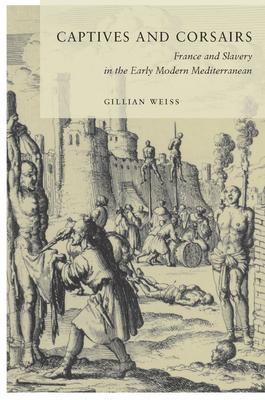Captives and Corsairs uncovers a forgotten story in the history of relations between the West and Islam: three centuries of Muslim corsair raids on French ships and shores and the resulting captivity of tens of thousands of French subjects and citizens in North Africa. Through an analysis of archival materials, writings, and images produced by contemporaries, the book fundamentally revises our picture of France's emergence as a nation and a colonial power, presenting the Mediterranean as an essential vantage point for studying the rise of France. It reveals how efforts to liberate slaves from North Africa shaped France's perceptions of the Muslim world and of their own "Frenchness". From around 1550 to 1830, freeing these captives evolved from an expression of Christian charity to a method of state building and, eventually, to a rationale for imperial expansion. Captives and Corsairs thus advances new arguments about the fluid nature of slavery and firmly links captive redemption to state formation--and in turn to the still vital ideology of liberatory conquest.

Captives and Corsairs: France and Slavery in the Early Modern Mediterranean
Captives and Corsairs uncovers a forgotten story in the history of relations between the West and Islam: three centuries of Muslim corsair raids on French ships and shores and the resulting captivity of tens of thousands of French subjects and citizens in North Africa. Through an analysis of archival materials, writings, and images produced by contemporaries, the book fundamentally revises our picture of France's emergence as a nation and a colonial power, presenting the Mediterranean as an essential vantage point for studying the rise of France. It reveals how efforts to liberate slaves from North Africa shaped France's perceptions of the Muslim world and of their own "Frenchness". From around 1550 to 1830, freeing these captives evolved from an expression of Christian charity to a method of state building and, eventually, to a rationale for imperial expansion. Captives and Corsairs thus advances new arguments about the fluid nature of slavery and firmly links captive redemption to state formation--and in turn to the still vital ideology of liberatory conquest.